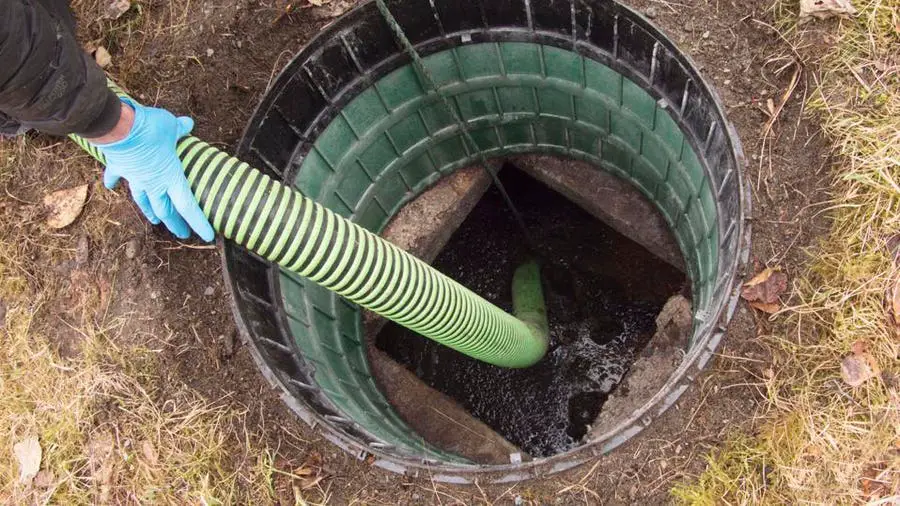Proper septic tank care is essential for preventing backups and costly repairs. Regular pumping and maintenance are crucial.
Maintaining a healthy septic tank is vital for the proper functioning of your home’s wastewater system. Neglecting septic tank care can result in unpleasant odors, clogged drains, and even contamination of the surrounding area. In this guide, we will provide simple, actionable tips for maintaining your septic tank, preventing issues, and ensuring its longevity.
By following these guidelines, you can avoid costly repairs and keep your septic system running smoothly. Whether you’re a first-time homeowner or simply want to brush up on septic tank care basics, this guide will provide you with the essential information you need to keep your septic system in top condition.
Understanding Your Septic System
Understanding your septic system is crucial to its proper care and maintenance. Even for those who consider themselves “dummies” when it comes to septic tanks, having a basic understanding of how the system works and its key components is essential. This knowledge can help in identifying potential issues early, ensuring the longevity and efficiency of your septic system.
Components Of A Septic System
Every septic system comprises three main parts: the tank, the drain field, and the soil beneath the drain field. The tank is a large, watertight container that holds wastewater from your home until solids settle to the bottom, forming sludge, and the lighter waste floats to the top as scum. The drain field is a network of perforated pipes laid in underground trenches filled with gravel. The soil beneath the drain field provides the final treatment and disposal of the septic tank effluent.
How Septic Tanks Work
- When wastewater from your home enters the septic tank, it undergoes a natural separation process.
- Heavy solids settle at the bottom, forming sludge, while lighter materials like grease and oil float to the top as scum.
- The remaining liquid, known as effluent, flows out of the tank and into the drain field for further treatment and dispersal into the soil.
Importance Of Regular Maintenance
- Regular pumping and inspection of your septic tank prevent the accumulation of sludge and scum, ensuring that the system functions properly.
- Proper maintenance also helps extend the lifespan of your septic system and reduces the risk of costly repairs or replacements.
Essential Septic Tank Maintenance Tips
Proper maintenance of your septic tank is crucial to preventing backups, odors, and costly repairs. By following these essential maintenance tips, you can help ensure your septic system operates efficiently and prolong its lifespan.
Proper Waste Disposal
Understanding what can and cannot be flushed or poured down the drains is crucial for septic tank care. Avoid disposing of non-biodegradable items, cooking oils, grease, and harsh chemicals as they can disrupt the natural balance of the septic system.
Regular Pumping And Inspections
Scheduling regular pumping of your septic tank is essential to prevent build-up of solids, which can lead to clogs and damage to the drain field. Additionally, routine inspections can identify any issues early on, preventing major problems from occurring.
Managing Water Usage
Controlling water usage in your household is important for the health of your septic system. Excessive water can overwhelm the tank and hinder the natural treatment process. Implement water-efficient practices such as fixing leaks, using high-efficiency fixtures, and spacing out laundry and dishwasher usage.
Common Septic Tank Issues And Solutions
If you own a property with a septic tank, it’s crucial to understand common issues that can arise and how to solve them. By being aware of the signs of a failing septic system, dealing with clogs and backups, and treating septic tank odors, you can avoid major problems and keep your septic system running smoothly. Let’s delve into each of these common septic tank issues and their solutions.
Signs Of A Failing Septic System
A failing septic system can manifest itself in various ways. Common signs that may indicate a problem include:
- Foul odor in the yard or around the septic tank area
- Slow drainage and gurgling sounds from the drains
- Puddles forming on the lawn or around the drain field
If you notice any of these signs, it’s important to address the issue promptly to prevent more severe damage to your septic system and property.
Dealing With Clogs And Backups
Clogs and backups are common issues with septic systems and can cause significant inconvenience. To prevent and address these problems, you can take the following steps:
- Be mindful of what goes down the drains and toilet to avoid clogging the system
- Regularly schedule septic tank pumping and maintenance to clear any build-up
- If a backup occurs, refrain from using water and contact a professional for assistance
Treating Septic Tank Odors
Unpleasant odors emanating from your septic system can be bothersome and may indicate an underlying issue. Here are some measures to address septic tank odors:
- Inspect for leaks or cracks in the tank or pipes and repair them as needed
- Add septic-safe enzymes or treatments to help break down organic matter and reduce odors
- Ensure proper ventilation in the septic tank area to facilitate odor dispersal
Eco-friendly Practices For Septic Tank Care
When it comes to maintaining a healthy septic system, implementing eco-friendly practices is not only beneficial for the environment, but it also contributes to the longevity and efficiency of the system. By using septic-safe products, implementing a maintenance schedule, and incorporating natural additives for microbial balance, you can ensure that your septic tank operates smoothly while minimizing the impact on the environment.
Using Septic-safe Products
Using septic-safe products is crucial for the well-being of your septic system. Harsh chemicals found in many household cleaners and personal care products can disrupt the natural balance of the septic tank, leading to potential issues and environmental harm. When selecting products for cleaning, laundry, and personal use, always look for items that are labeled as “septic-safe” or “septic-friendly”. These products are formulated to be biodegradable and gentle on your septic system, reducing the risk of disruption to the microbial balance within the tank.
Implementing A Maintenance Schedule
To ensure the proper function of your septic system, it is essential to implement a maintenance schedule. Regular pumping and inspection by a professional septic service provider are vital components of this schedule. Additionally, monitoring water usage and being mindful of what goes down the drains can help prevent overloading the system. By scheduling routine maintenance, you can catch any potential issues early, preventing costly repairs and minimizing the environmental impact of a malfunctioning septic system.
Incorporating Natural Additives For Microbial Balance
Incorporating natural additives for microbial balance is a proactive approach to promoting a healthy septic environment. Bio-stimulants, such as septic tank treatments containing beneficial bacteria and enzymes, can aid in breaking down organic matter within the tank. These natural additives can help maintain a well-balanced microbial ecosystem, ensuring efficient digestion of waste and reducing the likelihood of clogs and odors. By using these natural additives, you can support the ecosystem within the septic tank and contribute to a sustainable and eco-friendly approach to septic care.
Tips For Diy Septic Tank Care
If you’re a homeowner with a septic tank, taking care of it is essential for preventing costly issues down the line. With the right knowledge and tools, you can perform basic maintenance on your septic tank. Here are some valuable tips for DIY septic tank care that can help you maintain a healthy septic system and avoid potential problems.
Safe Practices For Diy Maintenance
When performing DIY maintenance on your septic tank, it’s important to follow some safety guidelines to protect yourself and the environment. Always wear protective gloves and avoid direct contact with sewage or wastewater. Additionally, make sure to properly ventilate the area and use caution when working around the tank opening to prevent accidents.
When To Call A Professional
While DIY maintenance can help extend the life of your septic system, there are situations where it’s best to leave the job to a professional. If you encounter complex issues such as major leaks, persistent odors, or sewage backup, it’s crucial to seek professional assistance to avoid further damage to your system.
Recommended Tools For Diy Inspections
Equipping yourself with the right tools is essential for conducting DIY inspections of your septic tank. Some essential tools for DIY septic tank care include a sewage pump, septic tank riser kit, inspection mirror, and a drain snake. These tools can help you perform routine inspections and minor maintenance tasks effectively.

Credit: www.amazon.com
Frequently Asked Questions For Septic Tank Care For Dummies
What Is The Best Thing To Put In Your Septic Tank To Keep It Clean?
The best thing to put in your septic tank to keep it clean is a septic tank treatment. These treatments contain helpful bacteria that break down waste and prevent clogs. Using them regularly can help maintain the health and efficiency of your septic system.
How Do You Maintain A Healthy Septic Tank?
To maintain a healthy septic tank, schedule regular inspections, pump every 3-5 years, avoid flushing non-biodegradable items, use septic-safe products, and conserve water. Proper maintenance ensures efficient functionality and prevents costly repairs.
What Not To Do With Septic Tank?
Avoid flushing non-biodegradable items, chemicals, excessive water use, ignoring maintenance, and parking on the septic tank. Regular maintenance is crucial for optimal functionality.
Should You Flush Every Time On Septic?
Yes, it’s important to flush every time on septic to prevent clogs and maintain proper function. Regular flushing helps distribute waste evenly and prevents backups. Proper maintenance is crucial for septic system longevity.
Conclusion
Proper septic tank care is crucial for preventing costly and hazardous issues. Regular maintenance, waste monitoring, and professional inspections are key. By following these simple steps, you can ensure the longevity and efficiency of your septic system. Implementing these practices will not only save you money but also protect the environment.

